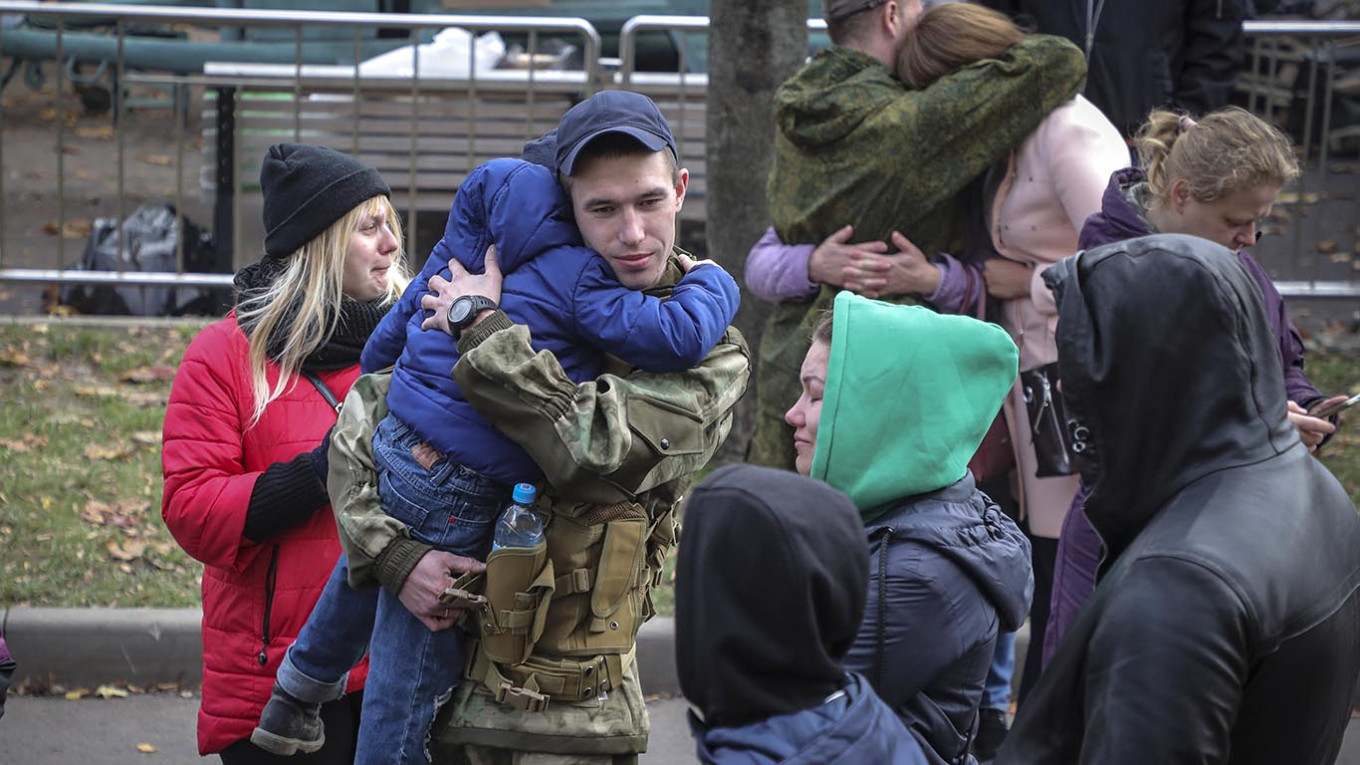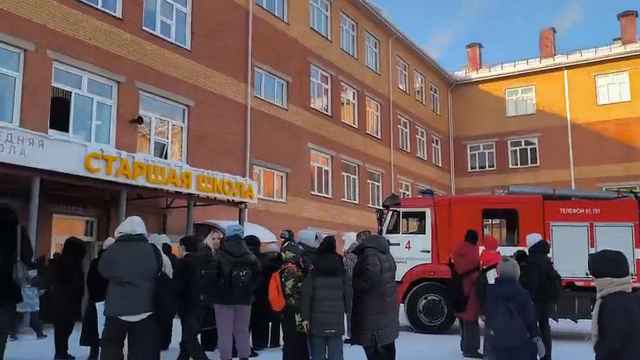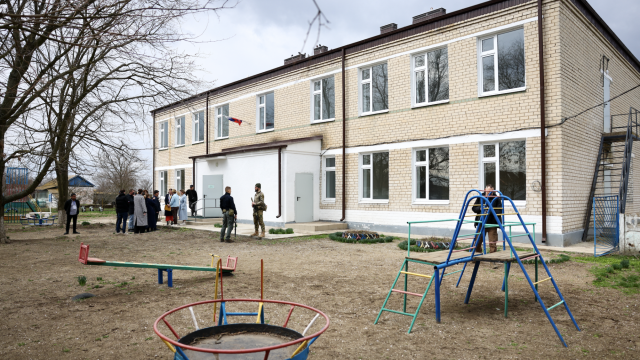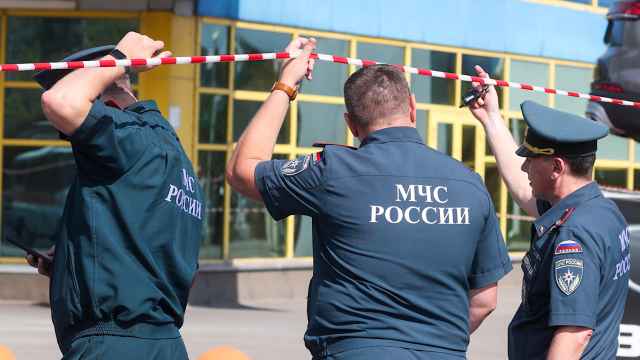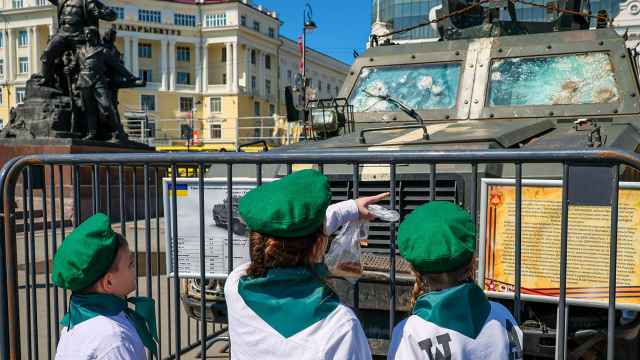As part of the Kremlin’s campaign to reduce orphanhood, Russia’s children’s rights commissioner Maria Lvova-Belova said she has given “particular attention” to families of men fighting in Ukraine.
But while official reports present the children of soldiers as secure and protected, accounts from regional ombudspersons indicate otherwise.
These stories reviewed by The Moscow Times reveal families left in poverty, children shuffled between relatives and institutions and widows navigating a bureaucracy that often strips them of support once a husband or father is killed or declared missing in action.
The Moscow Times has asked Lvova-Belova’s office for comment.
In the Sakhalin region, a single mother of two sought help after both of her former partners disappeared from her children’s lives.
The elder child’s father, once imprisoned, reportedly joined the war directly from his penal colony before being declared missing in action. The younger child’s father cut off contact altogether. Left without alimony, the woman survived on a state allowance of 12,000-23,000 rubles ($143-275) a month.
Similar cases involve widows or partners of missing soldiers who have been left to fend for themselves.
In the Pskov region, a woman lost access to state benefits after her husband, a soldier, was declared missing in Ukraine. As a result, the family ended up on the brink of poverty or, as the ombudsman described it, in a “difficult life situation.”
In the Tver region northwest of Moscow, the local children’s ombudsman also reported a rise in complaints from women seeking unpaid alimony from men who have gone to the front.
By law, minors left without parental care are placed under the supervision of child welfare authorities.
Larisa Loskutova, the children’s ombudswoman in Siberia’s Tomsk region, identified parental involvement in the Ukraine war as a key factor behind a child’s prolonged placement in state-run orphanages.
In the Altai region, dozens of soldiers’ families have now been formally registered with municipal juvenile affairs commissions, the local children’s ombudsman claimed — another indication that military service is pushing more families into crisis.
Russian orphanages are notorious for their poor conditions. Children often share everything except underwear, while reports of physical, psychological and sexual abuse continue to surface.
Some abusers face prosecution, while others avoid punishment altogether. In St. Petersburg, a man accused of abusing children was able to escape prison by signing a military contract and being sent to fight in Ukraine.
Once they leave these institutions at 18, many orphans are unprepared for adult life. They have not been taught how to pay bills or do laundry, and few possess personal belongings to take with them.
In the Vladimir region, custody of one boy was transferred from his grandmother, who had raised him since his mother lost parental rights in 2018, to his father, a soldier who had been absent for years.
The father had enlisted directly from prison and fought under contract in Ukraine. When he returned home at the end of his contract in 2023, he was granted full custody despite having no history of supporting the child. He has since gone back to the front.
“This story clearly shows that ‘veteran privileges’ also extend to their supposed unconditional right to children,” historian Dmitry Dubrovsky told The Moscow Times. “A ‘veteran’ can demand almost anything and usually gets it, even if it is clearly not in the child’s best interest — but in reality, Russia does very little to protect those interests.
“Under the pretense of so-called ‘traditional values,’ children are viewed as ‘property’ belonging first and foremost to the father and mother,” he continued. “So this ‘property’ is simply returned to its ‘owner,’ with no real concern for what happens to the child afterward.”
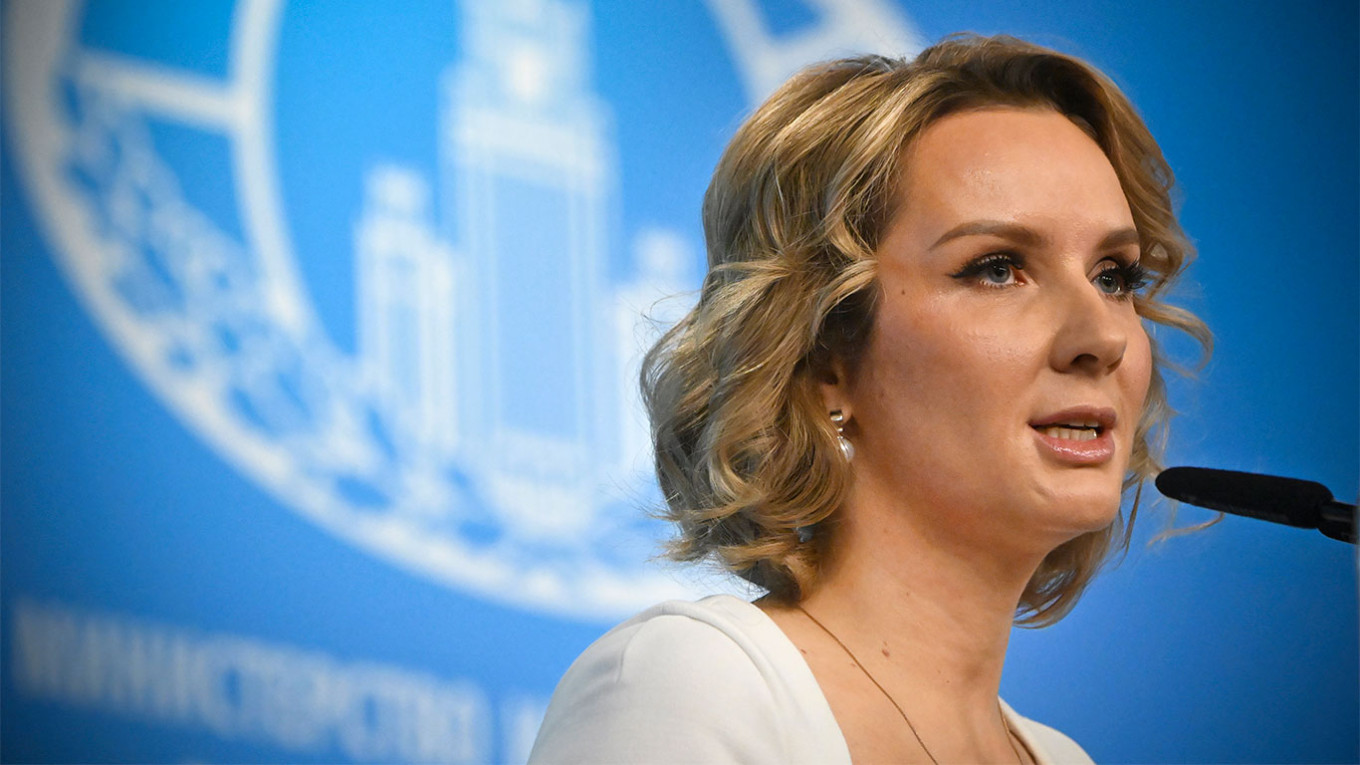
In the Jewish autonomous region, a small, sparsely populated wedge of Russia’s Far East, the local children’s ombudsman recounted the case of a soldier’s mother raising a child alone in a dilapidated former dormitory.
The building’s shared plumbing was broken, and the upstairs neighbor, a heavy drinker, posed a daily nuisance. After police and the building’s management company failed to intervene, she turned to the ombudsman.
“An authoritarian regime doesn’t automatically mean ‘well-managed’,” Dubrovsky added. “‘Misrule,’ or simply put, chaos, also characterizes ideological campaigns like the glorification of so-called ‘heroic warriors’.”
Researchers in Russia have published separate studies on the psychological toll borne by soldiers’ families.
In addition to the stress and anxiety experienced by children, psychologists also note families’ fear of their fathers and husbands returning from the war with PTSD — “fear about possible mental changes and the consequences they might bring after coming home.”
In some cases, child ombudsmen try to bring soldiers back from the front to care for their children.
Families in at least three regions have filed formal complaints asking to bring fathers home from the front line, The Moscow Times has calculated.
In the republic of Mordovia, one complaint involved a child whose mother died while the father was fighting in Ukraine. To resolve the boy’s custody, the ombudsman contacted military prosecutors, the Defense Ministry and the Prosecutor General’s Office. The father was eventually released from service and now raises the boy alone.
In the Volgograd region one mother asked the local ombudsman to bring her son home from the front. Her son has been fighting against Ukraine since 2022, and the child’s mother had died after the invasion began. The soldier filed a resignation request but received no response.
Last year, at the time of the complaint, the soldier and his child were both on the front line near the village of Tokmak in Ukraine’s Zaporizhzhia region, according to the local ombudsman.
A similar story was reported in the republic of Chuvashia, where a soldier with two disabled children asked to leave the military after his wife’s death in 2024, but other relatives were unable to provide care. The request has yet to be granted.
Children are sometimes raised by older relatives, some of whom have already started steering them toward military careers as the war drags on.
“A grandmother called me. She is raising her grandson because his father is serving in the special military operation area and his mother has died,” the Jewish autonomous region’s children’s rights commissioner recalled in a report.
The elderly woman, from the village of Yekaterino-Nikolskoye, had asked for help preparing her grandson’s documents to apply to military school.
The boy is now expected to enter the Ussuriysk Suvorov Military School — a pipeline for future officers.
A Message from The Moscow Times:
Dear readers,
We are facing unprecedented challenges. Russia's Prosecutor General's Office has designated The Moscow Times as an "undesirable" organization, criminalizing our work and putting our staff at risk of prosecution. This follows our earlier unjust labeling as a "foreign agent."
These actions are direct attempts to silence independent journalism in Russia. The authorities claim our work "discredits the decisions of the Russian leadership." We see things differently: we strive to provide accurate, unbiased reporting on Russia.
We, the journalists of The Moscow Times, refuse to be silenced. But to continue our work, we need your help.
Your support, no matter how small, makes a world of difference. If you can, please support us monthly starting from just $2. It's quick to set up, and every contribution makes a significant impact.
By supporting The Moscow Times, you're defending open, independent journalism in the face of repression. Thank you for standing with us.
Remind me later.


